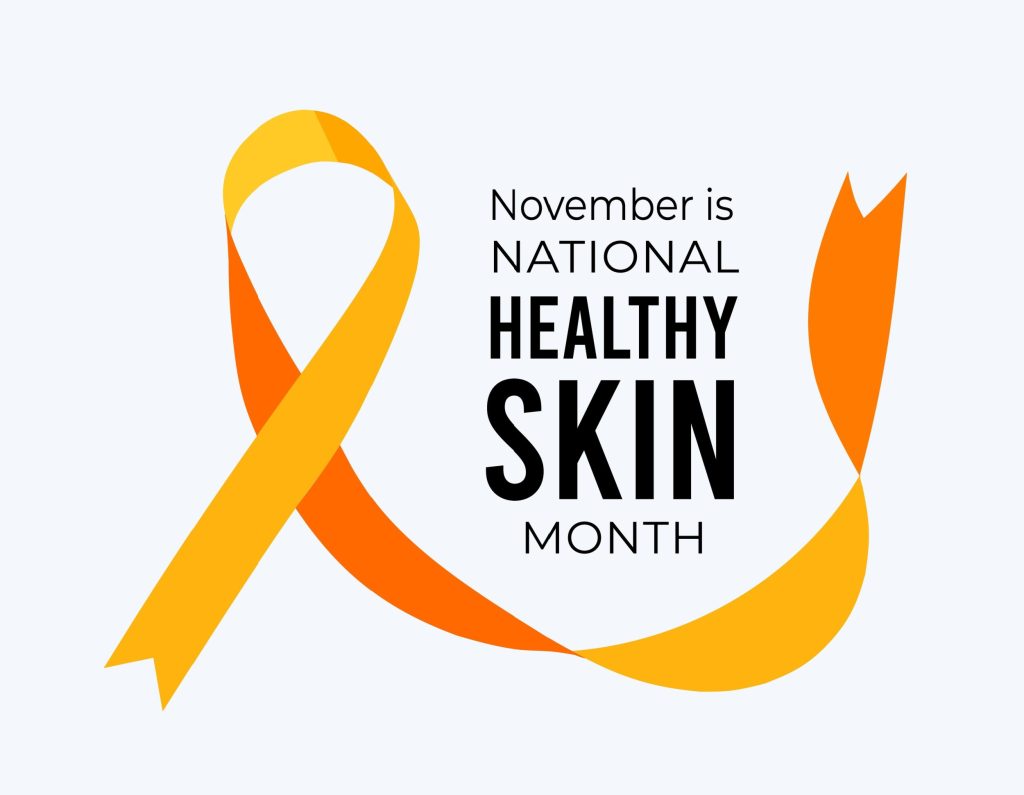
We’ve all heard the phrase “get your beauty sleep,” but there’s more truth to it than most people may realize. The hours you spend asleep aren’t just for rest, they’re when our body and skin get busy repairing, restoring, and renewing.
At Florida Dermatology and Skin Cancer Centers, we often remind our patients that healthy skin isn’t only about what you put on your face or in your body, it’s also about what’s happening while you sleep. Let’s explore how sleep (or lack of it) affects your skin, what you can do to create better sleep habits, and how your dermatologist can help you achieve better skin in the mix of it all.
What Does Sleep Do for Your Skin?
Here’s what’s happening beneath the surface during a good night’s rest:
- Your skin repairs and regenerates
During deep sleep, your body releases growth hormones that help repair damaged cells and build new collagen. This is the same collagen that keeps your skin firm, elastic, and youthful looking. When you consistently get enough rest, you’re giving your skin time to rebuild itself, which helps with overall appearance and function.
- Your skin barrier strengthens
Sleep supports your skin’s protective barrier (the outermost layer) that locks in moisture and keeps irritants out. When your barrier is healthy, your skin feels soft, hydrated, and is naturally more resilient. Without enough sleep, that barrier weakens, leading to dryness, dullness, and more frequent irritation.
- Inflammation and stress levels stay balanced
Poor sleep raises your stress hormone, cortisol, which triggers inflammation and can worsen conditions like acne, eczema, and rosacea. Good sleep, on the other hand, keeps inflammation in check and helps your skin look calm and refreshed.
- Blood flow and oxygen delivery improve
While you sleep, your circulation increases, bringing more oxygen and nutrients to your skin. That’s why a good night’s rest often leaves you looking more radiant, and a sleepless night can leave you with lackluster skin and dark circles.
What Happens to Skin When You Don’t Get Enough Sleep?
If you’ve had a bad night or two of sleep, your skin will be one of the first tell-tale signs; and the effects go much deeper than just puffy eyes. Here’s what happens.
- Accelerated aging
When you don’t get enough sleep, your body produces more cortisol, which breaks down collagen and elastin. These are the proteins that keep skin firm and smooth. That means chronic poor sleep can lead to premature wrinkles, sagging, and uneven tone.
- Dark circles, puffiness, and dull skin
A lack of sleep slows blood flow and increases fluid buildup under the eyes. That’s what creates dark circles and puffiness. Over time, this becomes more noticeable as your skin thins with age.
- Weakened barrier and dehydration
Sleep deprivation also causes your skin to lose more water overnight, leading to dryness and sensitivity. You might notice rough patches or flakiness even if you’re using the right products.
- Flare-ups of existing conditions
If you struggle with acne, eczema, psoriasis, or rosacea, lack of sleep can make symptoms worse. Stress hormones and inflammation go hand-in-hand, and both spike when you’re not getting quality rest. In short, your skin needs sleep as much as the rest of your body.
How to Create Better Sleep Habits for Healthier Skin
You don’t need a total lifestyle overhaul. Just a few simple habits can make a big difference for both your sleep and your skin.
Keep a consistent bedtime
Try to go to bed and wake up around the same time every day (even on weekends). A regular sleep schedule helps regulate your body’s internal clock and your skin’s natural repair cycle.
Power down before bed
Blue light from phones, TVs, and computers can suppress melatonin, the hormone that helps you fall asleep. Turn off screens at least 30 minutes before bed, and instead, try reading, stretching, or listening to calming music.
Create a sleep-friendly environment
Keep your bedroom cool, dark, and quiet. Use blackout curtains if needed and choose a comfortable pillow and bedding that support your skin and posture. If you wake up with creases or irritation, consider switching to a silk pillowcase, as it’s gentler on your skin and hair.
Incorporate a relaxing bedtime skin care routine
Your nighttime skin care can double as your wind-down ritual. Start with a gentle cleanser, then apply products like a hydrating serum, moisturizer, or retinoid. Applying products before bed helps seal in moisture and supports your skin’s overnight repair process.
Avoid late-night stressors
Caffeine, alcohol, heavy meals, and intense exercise close to bedtime can all interfere with quality sleep. Try cutting off caffeine by early afternoon and give your body time to relax before you hit lights out.
Anti-Aging Techniques to Support Your Skin While You Sleep
Even with the best sleep habits, your skin can still benefit from a little extra help. Here are some ways FLDSCC recommends supporting your skin’s overnight rejuvenation.
1. Use the right nighttime products
- Retinoids or retinol: These help boost collagen production and smooth fine lines.
- Antioxidants (like vitamin C and E): These help repair oxidative damage from UV exposure and pollution.
- Peptides and growth factors: These support the skin’s natural rebuilding process.
- Moisturizers with ceramides or hyaluronic acid: These restore hydration and strengthen the barrier overnight.
2. Schedule professional anti-aging treatments
At FLDSCC, our dermatology team offers a range of treatments designed to enhance your skin’s renewal process. In-office treatments can complement your at-home care and give your skin a more youthful appearance. When combined with healthy sleep, these therapies deliver even better results.
3. Time your skin care wisely
Some ingredients, like retinoids and exfoliating acids, work best at night because that’s when your skin is in repair mode and away from sun exposure. Daytime is better for antioxidant serums and sunscreen to protect your skin while it’s active and exposed to environmental stressors.
When It’s Time to See a Dermatologist
You should consider scheduling a consultation with your dermatologist if you’re experiencing:
- Fine lines, wrinkles, or sagging that seem to be progressing quickly
- Persistent dullness, dryness, or uneven tone
- Dark circles or puffiness that don’t respond to better sleep or skin care
- Acne, eczema, or rosacea flare-ups that worsen during stressful or sleepless periods
- Any sudden changes in skin texture, color, or elasticity
At FLDSCC, our team can evaluate whether these changes are due to natural aging, environmental damage, or internal factors like stress and lack of sleep. From there, we can create a personalized plan that combines professional treatments, targeted skin care, and lifestyle guidance for long-term results.
Ask our dermatology team about personalized anti-aging solutions to help your skin look rested, refreshed, and rejuvenated even on the days when you don’t quite get your eight hours.
About Us
FLDSCC’s team of providers are experts in diagnosing and treating skin cancers; skin conditions and diseases such as eczema, rosacea, dry skin, rashes, and warts; and chronic skin diseases and infections, while simultaneously tackling aging skin, wound care, and a multitude of other skin, hair, and nail concerns.
Several FLDSCC providers are fellowship-trained in Mohs micrographic surgery, an effective state-of-the-art treatment for most types of skin cancers. Mohs surgery involves minimal discomfort and encourages the greatest preservation of healthy tissue, which means less risk of scarring and superior cosmetic results.
FLDSCC has many convenient locations throughout the state. For more information, visit www.fldscc.com, or call (855) FLD-SKIN.


